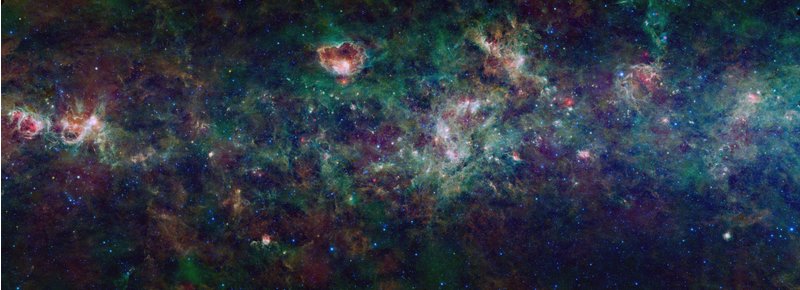牛津大學新研究指出,人類在可觀測宇宙中是孤獨的

|
長久以來,人類遐思是否有智慧生命在其他星球建立高等文明。這樣的幻想不僅成就了無數科幻小說,也使人憧憬于飛離太陽系、探索宇宙空間。 牛津大學人類未來研究所(Future of Humanity Institute)于6月發布的研究探討了該問題,給出的結論不容樂觀:在可觀測的宇宙中,人類很有可能孑然一身。 該研究審視了費米悖論——就是說,類似于太陽的恒星數以十億計,外星生命似乎應該存在,但與之相悖的是,其確實存在的證據卻幾乎沒有。該悖論以物理學家恩利克·費米命名。他曾在新墨西哥州洛斯阿拉莫斯(Los Alamos, N.M.)向同事提出那著名的問題:“他們人呢?” 研究的作者們討論了試圖用以解決費米悖論的各種假設和方程。結果卻并不令人驚喜: 我們的主要結論是,對研究中的不確定因素做科學處理之后,費米悖論的解答就是,人類在銀河系甚至整個可觀測宇宙中孤獨存在著,這就目前來看,完全不是不可能的。 我們的第二項結論是,承認我們在對其他文明是否普遍存在這一問題上存在觀測方面的局限的同時,我們最新的概率表明,人類獨自存在的可能性是極大的。 牛津研究人員安德斯·桑德伯格是作者之一。他向科學新聞博客Universal-Sci透露,根據一些標準,“可以得到的情況是,我們星系中所存在的文明數量的平均數可能達到很高——比如有一百,但人類獨自存在于銀河系的可能性有30%!” 桑德伯格說,考慮到產生智慧生命所必不可少的條件,他和其他作者的共同結論是,人類“相當有可能”是唯一的。 盡管如此,該研究卻反對向尋找地外文明潑冷水。“需要注意的是,本結論并不意味著我們就是孤獨存在著的(在我們星系內或在可觀測宇宙),只是說從科學上來講這是相當有可能的,并且沒什么不可思議。這只是對我們認知狀態的描述,并不是一項新的測定結果。” 然而,作為一名更加踴躍的空間探索倡導者,特斯拉(Tesla)的CEO埃隆·馬斯克上周在推特(Twitter)上看到了Universal-Sci的報道,回復道,“好奇怪啊。” 好奇怪啊 ——埃隆·馬斯克 穆斯克也是太空運輸公司SpaceX的CEO。他隨后又稱該研究的結論是人類文明實現太空航行并移居到地球以外空間的“附加動力”。 人類是否是可觀測宇宙中現存的唯一文明尚不清楚,但每一成的可能性都是我們向地球以外空間移民的附加動力 ——埃隆·馬斯克 (財富中文網) 譯者:沈昕宇 |
Humanity has long wondered whether other worlds have life intelligent enough to build advanced civilizations. The notion has not only inspired countless works of science fiction, but also dreams of space exploration beyond our solar system. A study released in June by Oxford University’s Future of Humanity Institute examined the question and came to a depressing conclusion: It’s quite likely that humans are alone in the observable universe. The study looked at the Fermi paradox – the apparent discrepancy between the seeming likelihood of alien life, given the billions of stars similar to our sun, and the scant evidence that such life actually exists. The paradox was named after physicist Enrico Fermi, who famously asked his colleagues at Los Alamos, N.M.. “Where Is Everyone?” The study authors then examined various hypotheses and equations used to resolve the Fermi paradox. The results weren’t pretty: Our main result is to show that proper treatment of scientific uncertainties dissolves the Fermi paradox by showing that it is not at all unlikely ex ante for us to be alone in the Milky Way, or in the observable universe. Our second result is to show that, taking account of observational bounds on the prevalence of other civilizations, our updated probabilities suggest that there is a substantial probability that we are alone. One of the authors, Oxford researcher Anders Sandberg, told the science news blog Universal-Sci that by some measures “one can have a situation where the mean number of civilizations in the galaxy might be fairly high—say a hundred—and yet the probability that we are alone in the galaxy is 30%!” Given the conditions necessary to foster intelligent life, Sandberg said, he and his co-authors concluded there is a “fairly high likelihood” humans are alone. Despite those conclusions, the study argued against despairing against finding intelligence in the universe. “Note that this conclusion does not mean that we are alone (in our galaxy or observable universe), just that this is very scientifically plausible and should not surprise us. It is a statement about our state of knowledge, rather than a new measurement.” Nonetheless, Tesla CEO Elon Musk, one of the more ardent champions of space exploration, noticed the Universal-Sci story on Twitter last weekend and replied, “so strange.” So strange ——Elon Musk? Musk, who is also CEO of space cargo company SpaceX, then cited the study’s conclusions as an “added impetus” for humanity to become a spacefaring civilization capable of extending life beyond Earth. It is unknown whether we are the only civilization currently alive in the observable universe, but any chance that we are is added impetus for extending life beyond Earth ——Elon Musk? |











